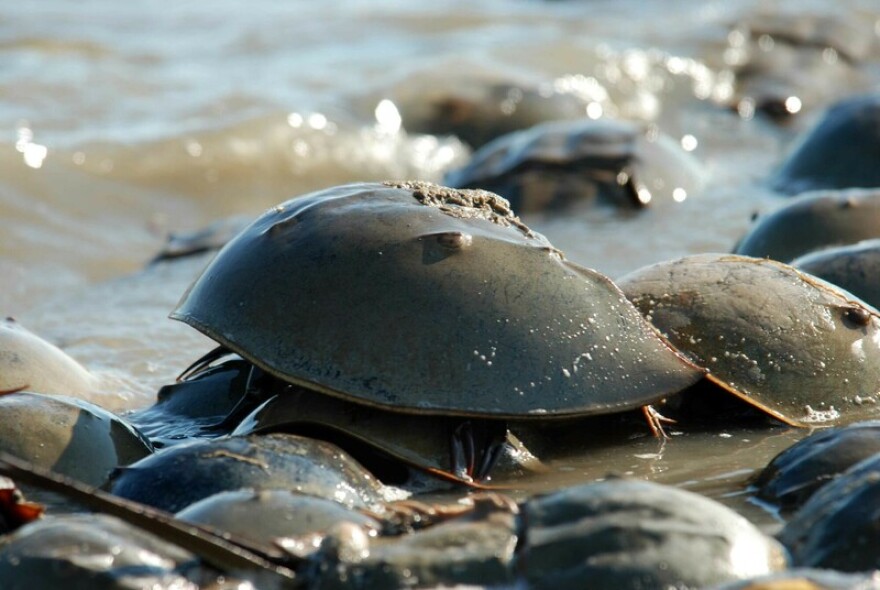Almost two dozen conservation groups are asking federal officials to list the American horseshoe crab as an endangered species under the Endangered Species Act. They delivered a petition to NOAA Fisheries earlier this month.
The population of horseshoe crabs has declined dramatically in recent decades because of overharvesting and habitat loss.
"Horseshoe crabs are some of the world's most ancient creatures," said Will Harlan, senior scientist at the Center for Biological Diversity. "Sadly, though, they're facing their greatest threat ever. And that's us. These living fossils urgently need Endangered Species Act protection."
Horseshoe crabs are over 400 million years old, nearly twice as old as dinosaurs. With 10 eyes and a long, spiked tail, they can be found along the Atlantic and Gulf coasts.
Habitat loss is one threat to horseshoe crabs. Beaches where the crabs typically lay eggs are being impacted by development and sea-level rise. Harlan said granting the crabs status as an endangered species would help protect their habitat.
"They nest on beaches all across the Atlantic coast, but there are certain beaches that they prefer," Harlan said. "And those beaches would ... be prioritized for any critical habitat designation to ensure that those horseshoe crabs can continue ... reproducing."
Another threat to horseshoe crabs is overharvesting. Commercial whelk and eel fisheries harvest the crabs for bait. They're also harvested by pharmaceutical manufacturers and biomedical companies.
Horseshoe crabs have blue blood, which is used to detect toxins in drugs and medical devices. According to Harlan, nearly one million horseshoe crabs were harvested for their blood in 2022.
"The good news is there's a synthetic alternative now ... already being used in Europe. [This alternative] is safer, more reliable, and doesn't use horseshoe crabs," Harlan said. "But we have been slow to adopt it in the United States."
Harlan added that the endangered species status could help accelerate that transition to a synthetic alternative.


